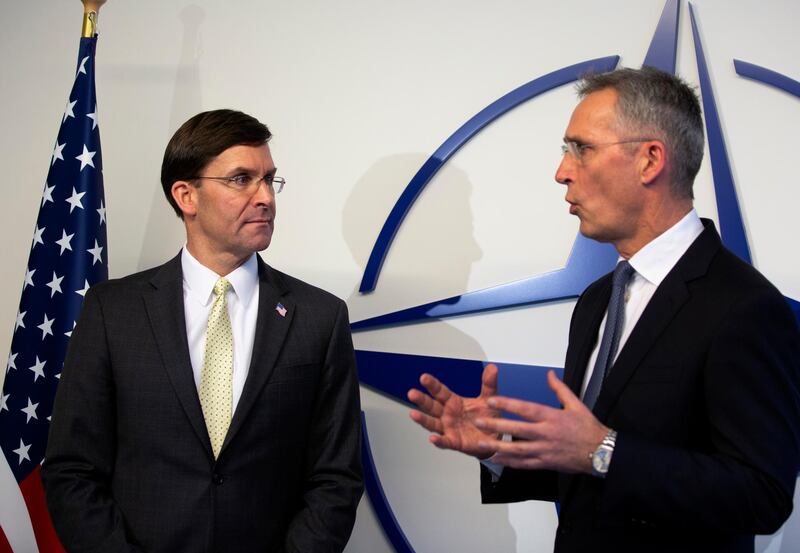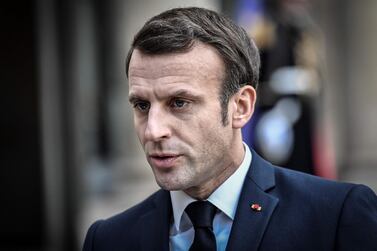Nato is expected to expand its mission in Iraq as military advisers in the international coalition against ISIS are redeployed as part of the transatlantic alliance.
Before a meeting of Nato defence ministers in Brussels on Tuesday, secretary general Jens Stoltenberg said members had agreed to provide more support in Iraq.
Mr Stoltenberg said a recommitment to Nato’s training mission was expected during the meeting.
The 430-strong “train-and-advise” mission was suspended after the US killing of Iranian general Qassem Suleimani in Baghdad in January.
"It is extremely important that ISIS is unable to return and never returns," Mr Stoltenberg said.
“ISIS is an organisation that has proven a will to use terrorism as a way to attack Nato-allied countries."
The initiative to essentially shift military advisers and trainers from the global coalition against ISIS to Nato is regarded by many in the bloc as a way to appease the US.
US President Donald Trump has been critical of Nato, saying members owe “vast sums of money” to America because of its contribution, and calling the organisation obsolete.
After the Suleimani killing and the increased tension it caused with Tehran, US demands over Nato engagement in the Middle East became more urgent, even if ill-defined.
As Iranian retaliation was expected, Mr Trump called on Nato to do more in the region.
Before the ministerial summit, Kay Bailey Hutchison, the US ambassador to Nato, said the change would please the White House.
“President Trump asked Nato to do more as part of the burden-sharing for European allies to come in with us and do more in counter-terrorism for all of our common defence and risks,” Ms Hutchison said.
“I think by taking some of the load and burden off of the Coalition to Defeat ISIS in the training area we can do that."
US Defence Secretary Mark Esper arrived in the Belgian capital on Tuesday to press the American case. He said he was looking forward to the talks.
The two-day ministerial meeting in Brussels will look to build on December’s Nato leader’s meeting in London.
The organisation, created in 1949 to counter the threat from the USSR, has been divided in recent years.
France and Turkey in particular have voiced frustration with the bloc.
In 2019, French President Emmanuel Macron called the alliance “brain dead”, particularly over its response to Syria’s civil war.
Turkey has been at odds with its Nato allies after its decision to buy a Russian air defence system.
Ankara also accuses its allies of not providing support in its fight against Kurdish groups in Turkey and Syria.
Nato has indicated it will further increase its presence in the Middle East.
Mr Stoltenberg talked of the efforts in Afghanistan, where Nato is involved in training Afghan troops.
Nations such as Germany and Norway are also poised to continue their work on an intra-Afghan peace deal there.
Mr Trump first raised the prospect of an expanded Nato role in the Middle East in 2017.
Germany and France have become more supportive of the non-combat mission in Iraq.







